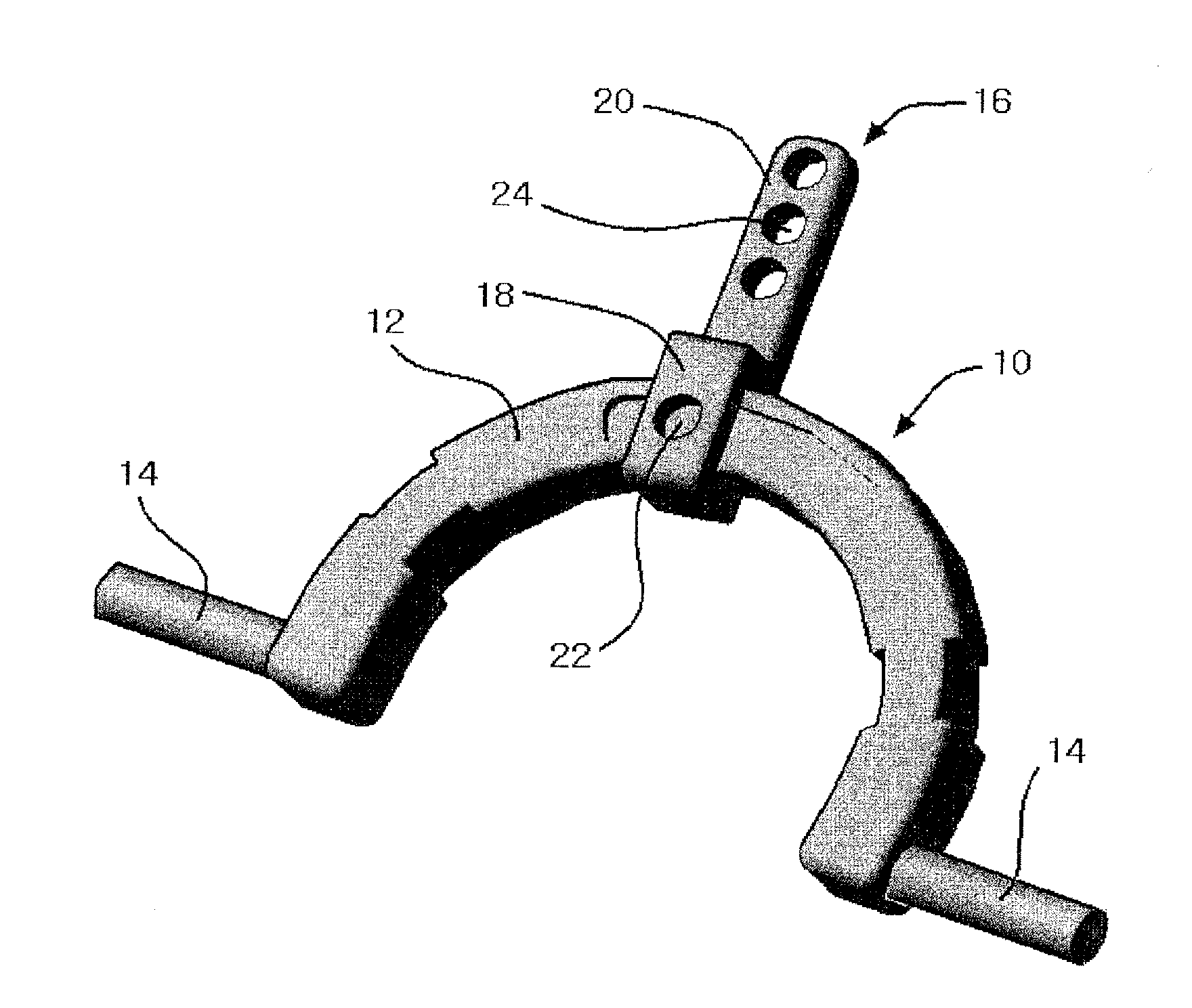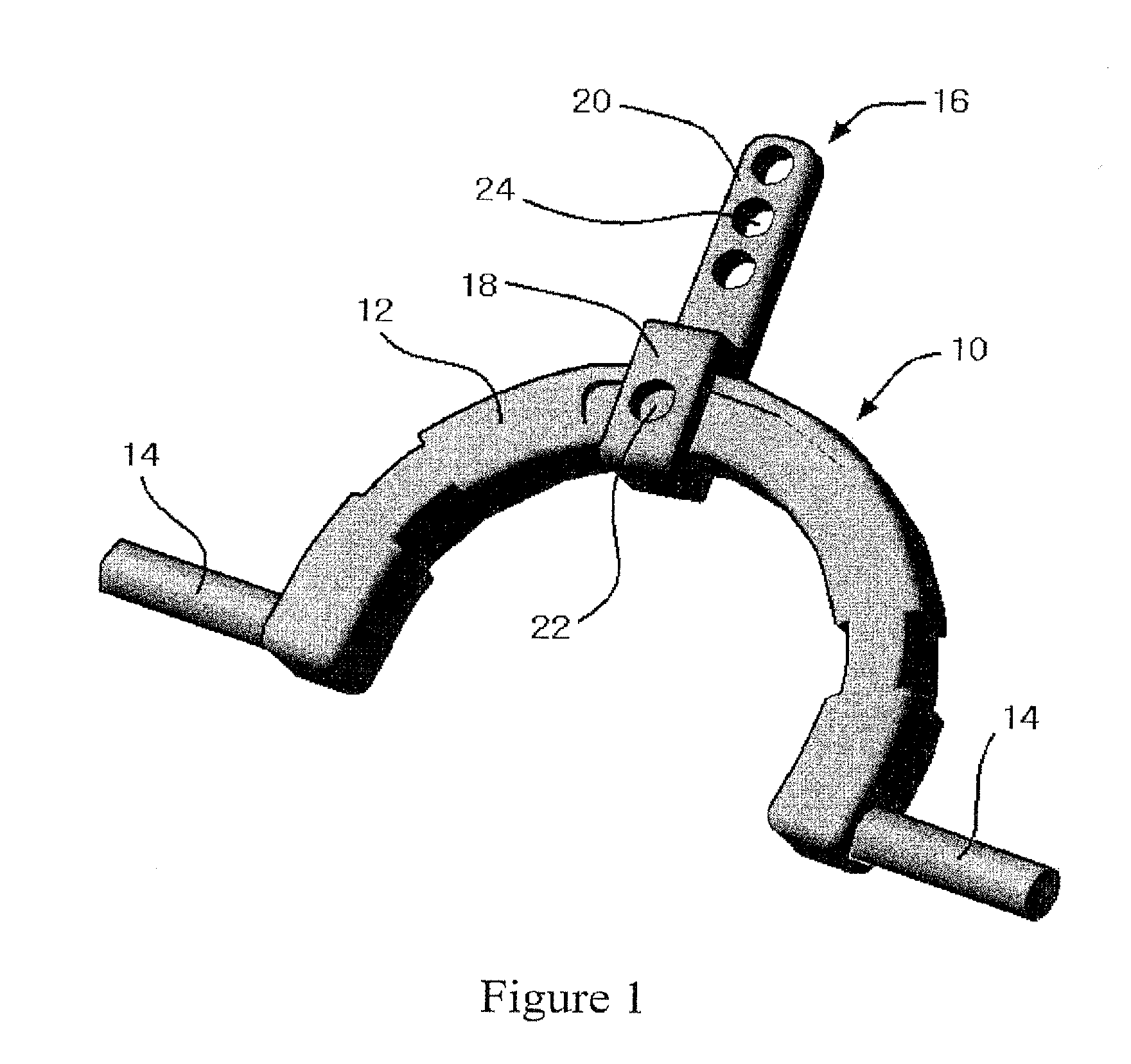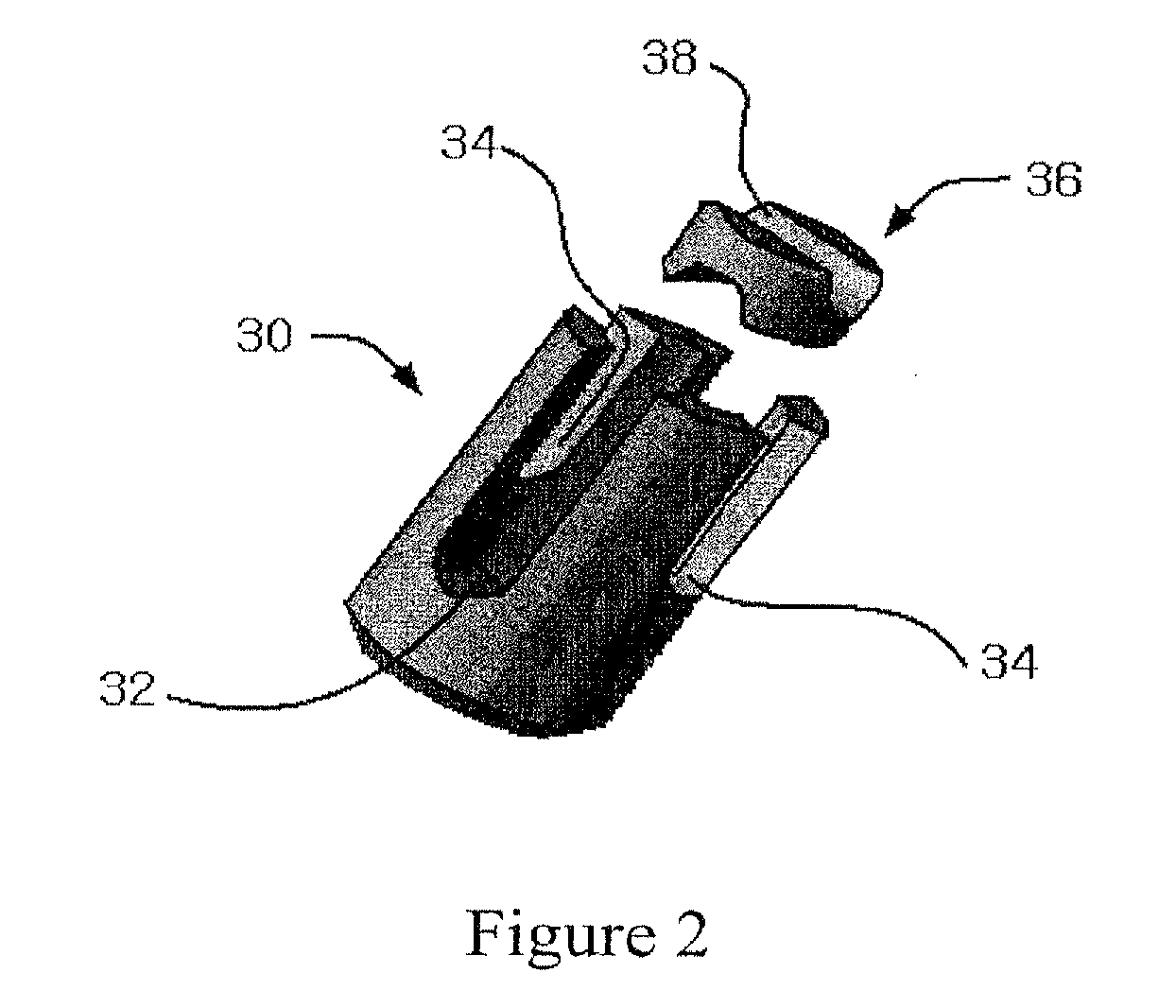Apparatus for Occipital-Cervical Fixation Enabling Supplemental Occipital Bone Fixation
a technology of occipital cervical spine and appendix, which is applied in the field of medical treatments, can solve the problems of inability to attach existing rigid plates and rods to the back of the skull (occiput), inability to stabilize the upper cervical spine with occipital bone, and inability to achieve bone fusion/fixation. , to achieve the effect of optimizing bone fusion/fixation and reducing the profil
- Summary
- Abstract
- Description
- Claims
- Application Information
AI Technical Summary
Benefits of technology
Problems solved by technology
Method used
Image
Examples
Embodiment Construction
[0032]Embodiments of the present invention relate to stabilization of the upper cervical spine. In particular, embodiments of the present invention provide an apparatus and method for stabilization of a head to a neck joint.
[0033]In accordance with an embodiment of the present invention, an apparatus for stabilization of the upper cervical spine is provided having a structure that includes three main parts. The first part can be referred to as a base, the second part can be referred to as an occiput attachment, and the third part can be referred to as a polyaxial screw.
[0034]Referring first to FIG. 1, it will there be seen that the first main part can be a rigid occi-cervical base member, denoted 10 as a whole. Base 10 includes “C”-shaped central part 12 and a pair of rigid attachment rods, collectively denoted 14, that extend transversely outwardly at respective free ends of said “C”-shaped occi-cervical central part. The occi-cervical base member can be a plate or crosslink.
[0035]...
PUM
 Login to View More
Login to View More Abstract
Description
Claims
Application Information
 Login to View More
Login to View More - R&D
- Intellectual Property
- Life Sciences
- Materials
- Tech Scout
- Unparalleled Data Quality
- Higher Quality Content
- 60% Fewer Hallucinations
Browse by: Latest US Patents, China's latest patents, Technical Efficacy Thesaurus, Application Domain, Technology Topic, Popular Technical Reports.
© 2025 PatSnap. All rights reserved.Legal|Privacy policy|Modern Slavery Act Transparency Statement|Sitemap|About US| Contact US: help@patsnap.com



